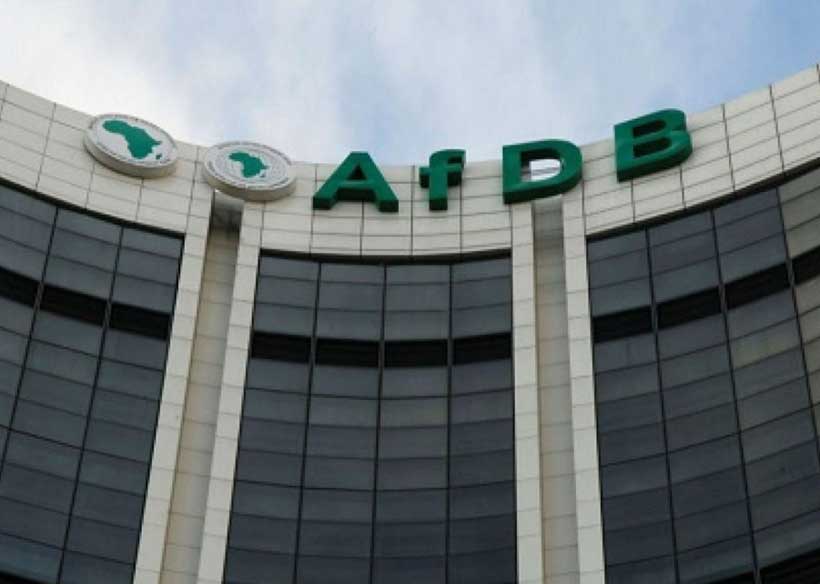Darkortey Urges Africa and Caribbean to Embrace Bold, Homegrown Growth Solutions
Darkortey represents a Bank constituency that includes Liberia, Ghana, Sierra Leone, the Gambia, and Sudan.

- Country:
- Ivory Coast
African Development Bank Group Executive Director Rufus N. Darkortey delivered a stirring call to action at the Africa-Caribbean Infrastructure Forum last month, urging African and Caribbean nations to “reimagine economic growth” by adopting courageous, homegrown development strategies.
A New Development Compact
Speaking on April 25 in Washington DC during the World Bank/IMF Spring Meetings, Darkortey outlined a transformative vision for a “new development compact” focused on domestic resource mobilization and vibrant private sector growth. He stressed the urgency of overhauling the current development financing model to escape a century-long trap of low-income status.
“Unless we change the current development financing model, Africa and the Caribbean could remain trapped in low-income status for another 100 years,” Darkortey warned, addressing delegates at the Ronald Reagan Building. “But with smart, courageous reforms and a renewed focus on homegrown solutions, we can accelerate that transformation in just 30 to 50 years—just as the Asian Tigers did.”
Darkortey represents a Bank constituency that includes Liberia, Ghana, Sierra Leone, the Gambia, and Sudan.
Infrastructure and Investment Gaps
Despite notable achievements, such as 1.9 million kilometers of new roads since 1995, Darkortey highlighted persistent gaps: only 30% of African roads are paved, compared to 92% in East Asia. Electricity access stands at 58% in Africa and 82% in the Caribbean.
Investment levels remain insufficient. Africa allocates only 3.1% of GDP to infrastructure—with just 12% from private sources—while the Caribbean invests 2.5%, with a meager 5% from private investors. In stark contrast, Asian countries invest 8% of GDP, 42% of which is private sector-financed.
Unlocking Domestic Potential
Darkortey emphasized that true development lies in unlocking local capacity. “We must expand fiscal space, modernize public financial management, and strengthen domestic private sector actors, particularly SMEs, which account for over 90% of businesses in Africa,” he stated.
By boosting domestic revenue collection and empowering small and medium-sized enterprises, countries can unleash capital for critical sectors like healthcare, education, agriculture, and infrastructure—while reducing debt vulnerabilities.
Proposed Solutions and Global Examples
Identifying weak private sectors, foreign industrial dominance, and low revenue collection as major roadblocks, Darkortey proposed proven public-private partnership models such as:
-
Output-based aid linked to delivered results
-
Build-operate-transfer infrastructure frameworks
-
Blended finance combining public and private capital
-
Special economic zones with targeted incentives
-
Sovereign-guaranteed gradual repayment schemes for SMEs
“These are not borrowed blueprints; they are tools already working across the globe,” he emphasized.
He cited inspiring development case studies: Vietnam’s $370 billion export sector, Bangladesh’s $42 billion garment industry, Ethiopia’s sixfold export growth, and the Dominican Republic’s GDP leap from $1,500 to over $11,000 per capita.
Bank-Funded Initiatives and Strategic Partnerships
Darkortey also showcased African Development Bank-backed efforts, such as the Desert to Power initiative aiming to deliver renewable energy to 250 million Sahelians, and support for Ethiopia’s emergence as a net wheat exporter.
The forum, co-hosted by SmartDev and the Africa Canada Trade and Investment Venture (ACTIV), attracted high-profile figures, including Haiti’s Minister of Finance Alfred Fils Metellus, Caribbean Development Bank VP Dr. Isaac Solomon, Zambia’s Ambassador Dr. Chibamba Kanyama, and senior representatives from the Gates Foundation and the World Bank Group.
Moderated by JESCA Solutions co-founder Dr. Carline Noailles, a panel of experts shared actionable strategies for unlocking private capital and expanding public-private partnerships.
A Call to Action
In a rousing conclusion, Darkortey urged African and Caribbean nations to turn away from aid dependency and toward a future built on domestic capital, SME innovation, and sovereign-led development.
“Let this century be remembered not for aid dependency,” he declared, “but for domestic capital mobilization, SME-driven innovation, and sovereign economic and infrastructure development.”










